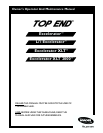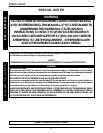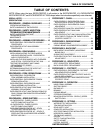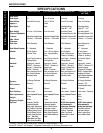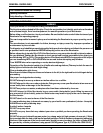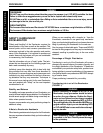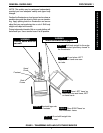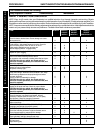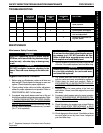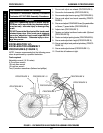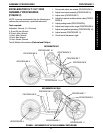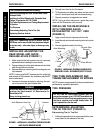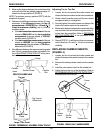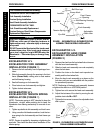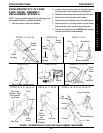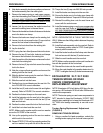
6
SAFETY/HANDLING OF
EXCELERATOR
“Safety and Handling” of the Excelerator requires the
close attention of the user as well as the assistant. This
manual points out the most common procedures and
techniques involved in the safe operation and mainte-
nance of the Excelerator. It is important to practice and
master these safe techniques until you are comfortable
in maneuvering the Excelerator.
Use this information only as a “basic” guide. The tech-
niques that are discussed on the following pages have
been used successfully by many.
Individual users often develop skills to deal with daily
living activities that may differ from those described in
this manual. Invacare recognizes and encourages each
individual to try what works best for him/her in overcom-
ing obstacles that they may encounter. Techniques in
this manual are a starting point for the new Excelerator
user and assistant with “safety” as the most important
consideration for all.
Stability and Balance
For stability and proper operation of your Excelerator, you
must at all times maintain proper balance. Your Excelerator
should remain upright and stable during normal daily ac-
tivities when operated correctly.
Invacare recommends using seat positioning straps for
additional safety.
A Note to Excelerator Assistants
When learning assistance techniques for the Excelerator,
have an experienced assistant help you before attempt-
ing it alone.
WARNING
TIRE PRESSURE
DO NOT use your Excelerator unless it has the proper tire pressure (p.s.i.). DO NOT overinflate the tires.
Failure to follow these suggestions may cause the tire to explode and cause bodily harm.
DO NOT ride on a flat or underinflated tires. Riding on flat or underinflated tires can cause injury, as well
as, damage to the tire, tube and bicycle.
WEIGHT LIMITATION
The Invacare Excelerator and Excelerator XLT/XLT 2000 have a maximum weight limitation of 250 lbs.
The Invacare Li'l Excelerator has a maximum weight limitation of 150 lbs.
When you are assisting with a transfer to / from the
Excelerator, remember to use good body mechanics.
Keep your back straight and bend your knees whenever
lifting or positioning the Excelerator for the end-user.
Also, be aware of detachable parts. These must NEVER
be used for lifting supports, as they may be inadvertently
released, resulting in possible injury to the user and/or
assistant.
Percentage of Weight Distribution
Transferring in and out of the Excelerator will cause a
change to the normal balance, the center of gravity, and
the weight distribution of the Excelerator. To determine
and establish your particular safety limits, practice trans-
ferring activities in several combinations in the presence
of a qualified health care professional BEFORE attempt-
ing a transfer alone.
Proper positioning is essential for your safety.
Transferring into/out of the Excelerator
(FIGURE 1)
WARNING
Before attempting to transfer IN or OUT of the
Excelerator, every precaution should be taken
to reduce the gap distance. Position the Excel-
erator on level ground and as close as possible
to the object you are transferring INTO or OUT of.
The parking brake of the Excelerator MUST be en-
gaged and the object you are transferring INTO
or OUT of MUST also be secured before attempt-
ing any transfer.
CAUTION
When transferring, position yourself as far back
as possible in the seat. This will prevent damage
to the upholstery.
G
E
N
E
R
A
L
G
U
I
D
E
L
I
N
E
S
GENERAL GUIDELINESPROCEDURE 1



